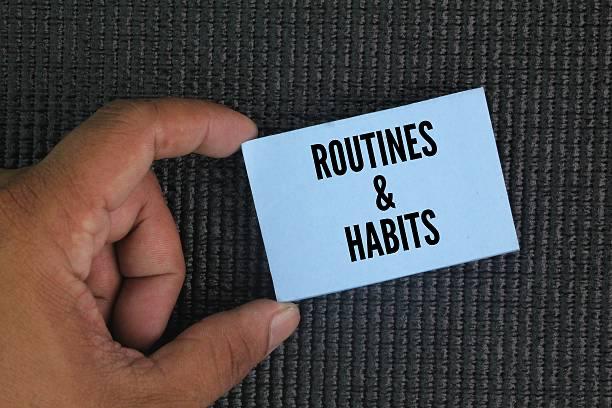
Modern life is loud. Notifications, deadlines, emotional expectations, changing environments
and the constant pressure to perform make everyday living feel chaotic. That is where routines
become essential. Psychologically, they are one of the most powerful and healing tools we
have. Routines give the mind something it desperately needs but rarely receives:
predictability. The brain is designed to conserve energy. Every time you repeat a habit like
brushing your teeth at the same time, opening the blinds every morning or taking a short walk
after lunch, the mind can relax. It doesn’t need to make a decision or evaluate options. This
reduction of micro-decisions lowers stress levels, increases mental clarity and stabilizes
emotional balance. In psychology routines are seen as a form of external structure that
supports internal stability. When life becomes overwhelming, routines act like an anchor that
keeps you from drifting. A tidy corner of your home, the same cup of coffee every morning,
the ritual of journaling or a consistent bedtime. All these tiny actions give the nervous system
a safeness feeling.

Routines also strengthen self-trust. Following through on small habits, even ones that take
only a few minutes reinforces the belief that you can rely on yourself. Over time, this builds
confidence, competence and resilience. It creates a positive cycle. The more you keep tiny
promises to yourself, the more capable and grounded you feel. One of the most underrated
effects of routine is its ability to reduce overthinking. When the day is unstructured, the mind
has limitless space to worry, compare and analyze. Structured days break this cycle. They
give the mind a path to follow instead of leaving it wandering through uncertainty. Especially
in stressful or transitional phases like a new city, exams, a breakup or a demanding job,
routines offer psychological scaffolding that holds together when everything else feels
unstable.

Importantly, routines don’t need to be rigid or strict. The most effective ones are
flexible and gentle habits that support rather than control your day.
We don’t need a perfect morning routine with fifteen steps. Sometimes lighting a candle,
stretching for one minute or making the same breakfast is enough to create a sense of
grounding. In quiet, repeated actions as watering plants, making the bed, applying skincare,
sitting with a cup of tea, we reconnect with ourself. They remind us that stability is something
we can create, even on difficult days. In a world of constant change, routines become a form
of emotional protection. They add calm to overstimulating environments. And sometimes the
smallest habits, done consistently, become the strongest base for mental health.
Contact Information:
Selina Demir
selinademir.aut@gmail.com
Instagram: selina.demr


